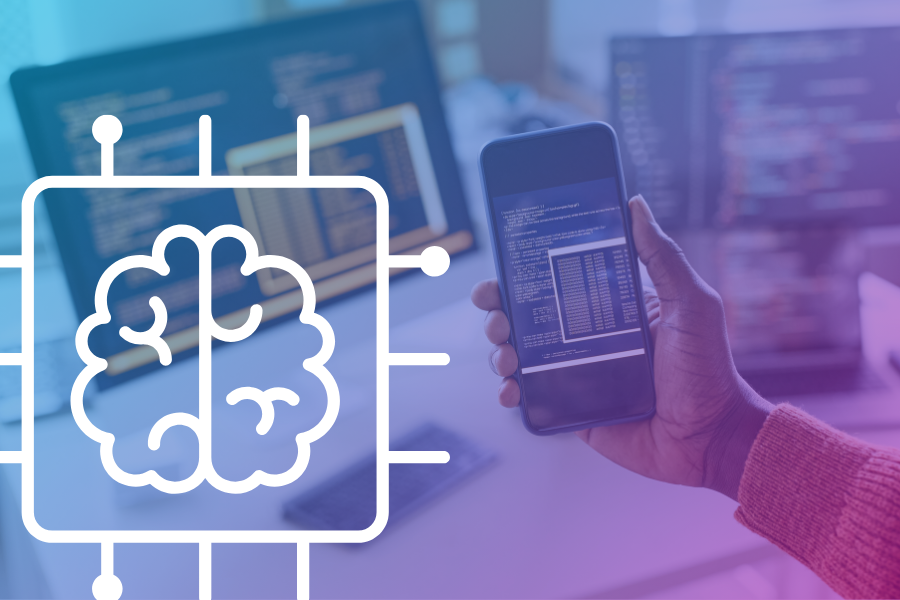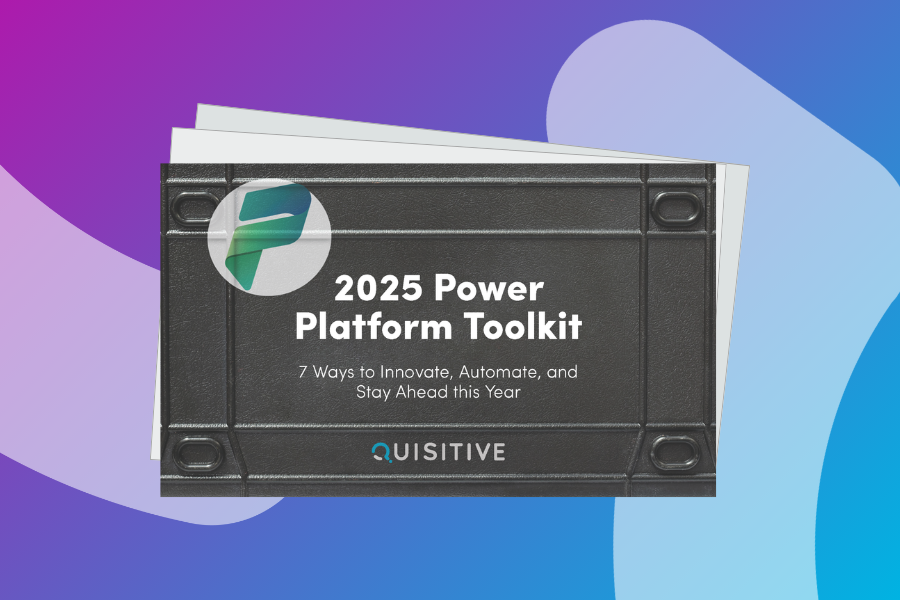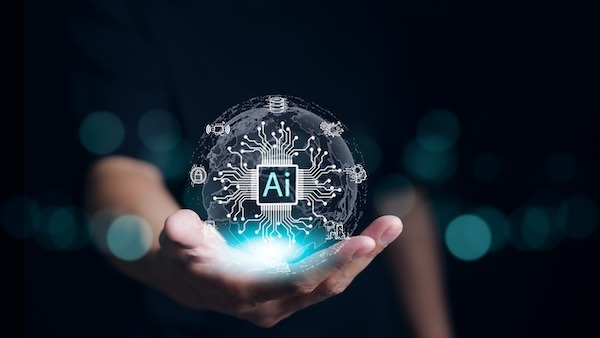Custom applications are essential for solving specific business challenges and providing tailored solutions that off-the-shelf software often cannot. However, as artificial intelligence (AI) becomes increasingly integral to business success, many organizations are exploring ways to enhance their custom applications with AI capabilities.
AI is no longer just a buzzword—it’s a transformative force that can significantly improve operational efficiency. Imagine automating workflows, optimizing decision-making, or personalizing customer experiences.
According to McKinsey, companies implementing AI in their operations experience 20-30% improvements in efficiency1. And PwC projects that AI will add a staggering $15.7 trillion to the global economy by 2032. Whether you’re looking to streamline processes or stay ahead of the competition, integrating AI into your custom applications is a game-changer.
Why Augment Your Custom Applications with AI?
Incorporating AI into custom applications isn’t just a luxury—it’s a powerful way to unlock new opportunities and create long-term value. AI allows organizations to enhance functionality, improve productivity, and drive growth.
- Increased Efficiency and Automation: AI can automate mundane and repetitive tasks, freeing up employees to focus on higher-value work. For example, chatbots can manage customer service inquiries, reducing the time and resources spent on manual tasks. A McKinsey & Company report found that AI automation can increase productivity by up to 40%2.
- Improved Decision-Making with Predictive Analytics: Predictive analytics powered by AI can give businesses a competitive edge by identifying trends and patterns that help forecast future events. For instance, AI can be used to predict customer behavior, demand fluctuations, and sales trends. Gartner reports that businesses using AI for predictive analytics see a 30% improvement in decision-making speed3.
- Enhanced Customer Experience: AI-powered tools like chatbots, personalized recommendations, and natural language processing (NLP) enable businesses to offer more responsive and personalized experiences. A Forrester survey found that 71% of consumers are more likely to engage with brands offering personalized experiences, driven by AI capabilities4.
Key Use Cases for AI in Custom Applications
The power of AI lies in its versatility, allowing businesses to use it across various aspects of their operations. Here are some of the most impactful ways AI is integrated into custom applications:
- AI Chatbots and Virtual Assistants: AI-powered chatbots are one of the most common AI integrations for customer service. By automating responses to customer queries, businesses can reduce response times and ensure 24/7 availability. According to HubSpot, 64% of consumers and 71% of business buyers prefer interacting with chatbots for immediate customer service responses5.
- Predictive Maintenance: For industries such as manufacturing and logistics, AI can be used to predict when machinery or equipment will require maintenance, preventing costly downtime. Custom applications in these industries can leverage AI to monitor the condition of equipment and predict failures. Deloitte notes that predictive maintenance using AI can reduce maintenance costs by 25% and increase equipment uptime by 20%6.
- Fraud Detection: AI-driven custom applications can analyze vast amounts of transactional data to detect anomalies and identify potential fraud. By spotting unusual patterns in real-time, AI can reduce the likelihood of fraud and enhance security. AI-based fraud detection has the potential to reduce fraud rates by 30% across industries7.
- Natural Language Processing (NLP) for Text Analysis: AI can also be integrated into custom applications to analyze and understand textual data, such as customer feedback, emails, and social media posts. By using NLP, businesses can gain insights into customer sentiment and preferences, leading to more informed decision-making. Statista predicts the global NLP market will reach $43.6 billion by 2025, highlighting the growing demand for AI in this area8.
Steps to Make Your Custom Applications AI-Ready
AI integration starts with a solid foundation. Modernizing your custom application ensures it can support advanced AI features. Here are three key steps:
- Assess Your Application’s Current State: Before you start, evaluate your application’s architecture. Legacy systems often lack the scalability and flexibility needed to support AI features. Look for bottlenecks in data processing and identify gaps in cloud infrastructure that may limit scalability.
- Modernize for Scalability: Transitioning your application to modern platforms like Azure Platform as a Service (PaaS) or containerizing with Azure Kubernetes Services (AKS) ensures it’s scalable and prepared to handle AI workloads.
- Build and Integrate AI Features: Once modernized, you can start integrating AI features that align with your business goals. This includes machine learning models for forecasting and insights, NLP engines to enable chatbots or intelligent search, and computer vision to power image recognition. These features not only enhance functionality but also future-proof your application, ensuring it evolves alongside your business needs.
Don’t Wait to Make Your Applications AI-Ready
AI isn’t just for enterprises—it’s for any business ready to improve efficiency, scale operations, and deliver better experiences. Whether it’s chatbots for instant support, predictive analytics for smarter decisions, or automation to free up valuable resources, augmenting your custom applications with AI ensures you remain competitive in today’s fast-changing market.
Let’s get your custom applications AI-ready in less than 90 days!
Unlock the potential of your custom applications with our tailored AI modernization and integration services from Quisitive. Whether it’s modernizing your app onto Azure PaaS, containerizing it for scalability, or integrating advanced AI features like chatbots, predictive analytics, or natural language processing, we deliver end-to-end solutions designed for your unique needs.
Our offerings include:
- AI Readiness Assessment: A comprehensive evaluation of your application’s architecture to ensure it’s primed for AI.
- AI Feature Ideation and Planning: Workshops to identify impactful AI use cases aligned with your business goals.
- Proof of Concept Development: Rapidly demonstrate feasibility and ROI with a functional POC.
- Production-Ready Implementation: Delivering deployment-ready solutions with thorough testing and training for your team.
With flexible funding options available for those who qualify, you can reduce upfront costs and accelerate your transformation. Let us help you turn your AI ambitions into reality while optimizing your applications for long-term success.
Sources:
- McKinsey & Company report on AI efficiency improvements: [McKinsey Report](https://www.mckinsey.com/capabilities/quantumblack/our-insights/the-state-of-ai) 1.
- PwC projection on AI’s economic impact: [PwC Report](https://www.pwc.com/gx/en/issues/artificial-intelligence/publications/artificial-intelligence-study.html) 2.
- Gartner report on predictive analytics: https://www.gartner.com/reviews/market/analytics-and-decision-intelligence-platforms-in-supply-chain. 3.
- Forrester survey on AI-enhanced customer experiences: https://www.forrester.com/blogs/the-state-of-consumer-usage-of-generative-ai-2024/ 4.
- HubSpot analysis on chatbot usage: [HubSpot Analysis](https://blog.hubspot.com/service/customer-service-chatbots) 5.
- Deloitte report on predictive maintenance: https://www2.deloitte.com/content/dam/Deloitte/us/Documents/process-and-operations/us-smart-manufacturing-predictive-maintenance-infographic.pdf. 6.
- Keymakr insights on AI in fraud detection: [Keymakr Insights](https://www.keymakr.com/blog/fraud-fighters-how-ai-and-machine-learning-can-combat-financial-fraud/) 7.
- Statista forecast on the global NLP market: https://www.statista.com/outlook/tmo/artificial-intelligence/natural-language-processing/worldwide 8.

;)



